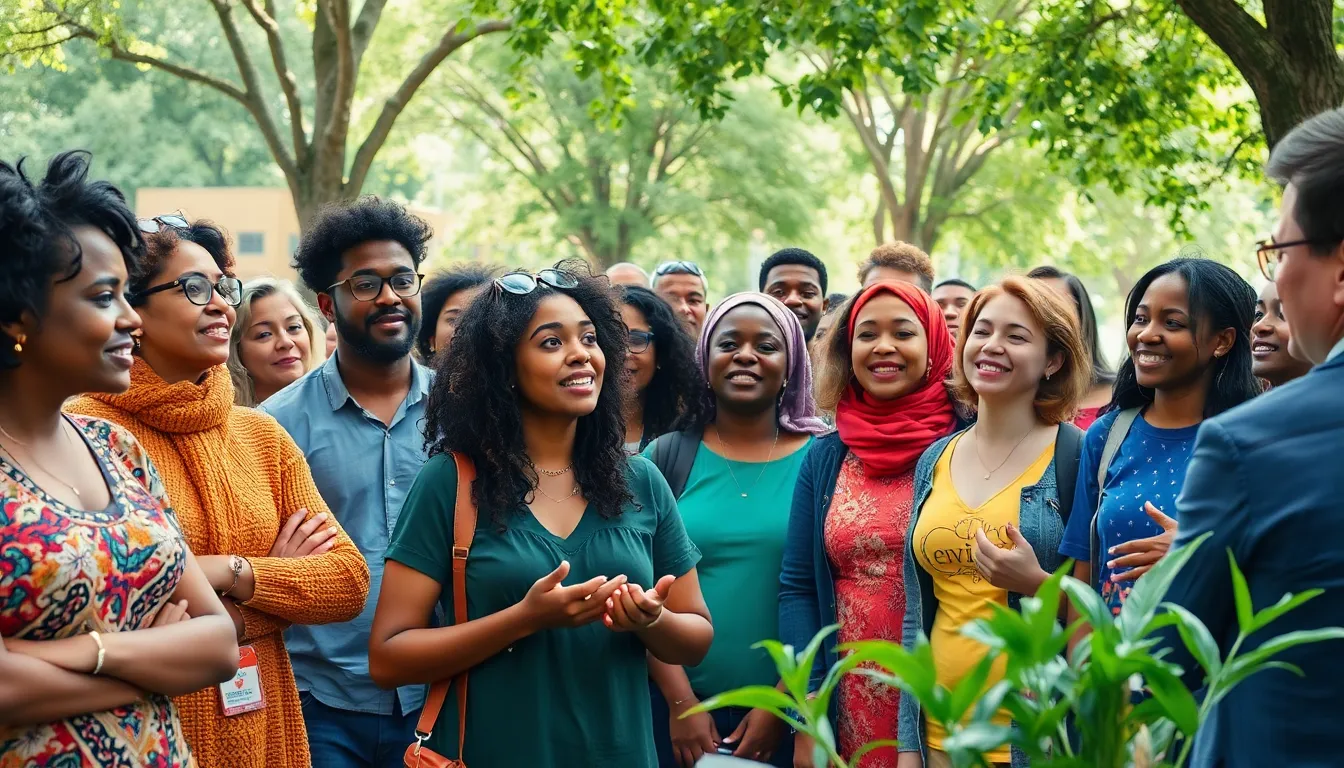Stories have the power to inspire, ignite change, and reshape the world. Throughout history, narratives of courage, resilience, and innovation have sparked movements that altered the course of societies. These world-changing stories not only capture the imagination but also serve as catalysts for action, reminding us of our shared humanity.
From the struggles for civil rights to groundbreaking scientific discoveries, each tale carries a unique message that resonates across generations. They highlight the extraordinary impact of individuals and communities who dared to challenge the status quo. As readers delve into these transformative accounts, they’ll discover how one voice can echo through time, inspiring others to join the fight for a better future.
Table of Contents
ToggleWhat Are World-Changing Stories?
World-changing stories are narratives that drive significant social, political, or environmental transformations. These stories reflect pivotal moments in history, highlighting individual and collective actions that provoke change. They often illustrate themes of courage, resilience, and innovation, showcasing how ordinary people confront extraordinary challenges.
World-changing stories can manifest through various mediums, including literature, film, and oral traditions. Each story conveys powerful messages, often inspiring movements for justice, equality, and progress. Examples include Martin Luther King Jr.’s “I Have a Dream” speech, which galvanized the civil rights movement, and Rachel Carson’s “Silent Spring,” which sparked environmental awareness and action.
These narratives not only document events but also capture the emotional and human aspects of struggle and triumph. They encourage empathy and understanding, reminding individuals of their shared humanity. By examining these transformative tales, one recognizes the interconnectedness of experiences across time and culture, reinforcing the idea that stories hold the power to shape perceptions and motivate action.
The Power of Storytelling

Storytelling possesses immense power to influence thoughts, behaviors, and societal structures. This impact stems from the ability of narratives to forge emotional connections and inspire actionable change.
Emotional Connection
Emotional connection amplifies the significance of a story. When individuals engage with a narrative, they often relate personal experiences to the themes presented. This connection fosters empathy, enabling listeners to understand diverse perspectives. For instance, narratives revealing personal struggles create a sense of shared humanity, encouraging listeners to reflect on their values and beliefs. Studies indicate that emotionally charged stories can activate brain regions associated with empathy, enhancing the likelihood of forging connections among people. Stories encouraging compassion can lead to increased support for social causes and initiatives.
Inspiring Action
Inspiring action results from the compelling nature of certain narratives. Stories depicting heroic acts of individuals or communities often prompt others to act. Powerful examples include the suffragettes who mobilized through storytelling to advocate for women’s rights and the activists who harnessed the power of social media to amplify their messages. Research shows that narratives emphasizing collective efforts instill a sense of agency among individuals, motivating them to contribute toward societal change. Transformative stories resonate beyond mere documentation, serving as catalysts that encourage individuals to participate in movements for justice and equality.
Notable World-Changing Stories
World-changing stories have shaped societies by highlighting the resilience and courage of individuals. They serve as powerful reminders of humanity’s capacity for progress and transformation.
Historical Examples
Historical stories illustrate the transformative power of narratives. The abolition of slavery in the 19th century stands as a significant example, driven by passionate voices like Frederick Douglass and Harriet Tubman. Their accounts of oppression galvanized public opinion and led to crucial legal reforms. Another pivotal moment occurred during the suffrage movement, where activists such as Susan B. Anthony and Emmeline Pankhurst advocated for women’s rights, utilizing speeches and writings to sway societal views on gender equality. These historical milestones profoundly impacted laws and cultural norms, inspiring future generations to continue the fight for justice.
Contemporary Voices
Contemporary stories echo earlier struggles while addressing modern issues. Malala Yousafzai’s activism for girls’ education showcases the ongoing battle for equal access to learning. Her story of survival inspires millions, highlighting the importance of education in alleviating poverty and promoting gender equality. Additionally, movements like Black Lives Matter leverage social media to circulate powerful narratives of racial injustice, connecting individuals globally in the fight against systemic racism. These contemporary voices underscore the enduring significance of storytelling in advocating for social change, fostering community solidarity and action.
Impact on Society
World-changing stories shape societal norms and influence collective behavior. These narratives create a shared understanding and inspire communal efforts towards justice, equality, and environmental sustainability.
Emotional Connection
Emotional connections play a crucial role in the effectiveness of these stories. They resonate with audiences, prompting individuals to empathize with the struggles faced by others. Studies demonstrate that emotionally charged narratives activate areas of the brain associated with empathy, enhancing support for various social causes.
Historical Transformations
Historical narratives document pivotal moments that sparked societal transformations. The abolition of slavery demonstrates the impact of passionate storytelling. Frederick Douglass and Harriet Tubman highlighted the horrors of slavery, persuading public opinion through their experiences. Activists inspired by these stories led to significant legal reforms.
Advocacy Through Narratives
Advocacy movements leverage storytelling to mobilize support. The suffrage movement, driven by figures like Susan B. Anthony and Emmeline Pankhurst, exemplifies how powerful narratives can garner public attention and push for change. These stories emphasize the struggle for women’s rights, reinforcing the need for meaningful action.
Modern Movements
Contemporary movements utilize storytelling as a strategic tool. Malala Yousafzai’s advocacy for girls’ education demonstrates the continuing relevance of personal narratives in addressing current issues. Similarly, the Black Lives Matter movement employs social media to share powerful stories that highlight systemic racism and inspire collective action.
Enduring Influence
World-changing stories transcend time, resonating across cultures and generations. They reinforce the importance of empathy and shared experiences, fostering solidarity among diverse communities. The transformative power of these narratives serves as a cornerstone for societal progress, motivating individuals to challenge the status quo and advocate for a better future.
World-changing stories continue to resonate across generations. They remind individuals of the strength found in unity and the power of shared experiences. Through compelling narratives, people find the courage to challenge injustices and drive transformative change.
These stories serve as a bridge connecting past struggles with present movements. They inspire action and foster empathy, encouraging communities to stand together for justice and equality. As society evolves, the impact of these narratives remains profound, shaping the future and motivating individuals to contribute to a better world.
In every story lies the potential to ignite change, proving that even the smallest voice can create a ripple effect that transforms society.


